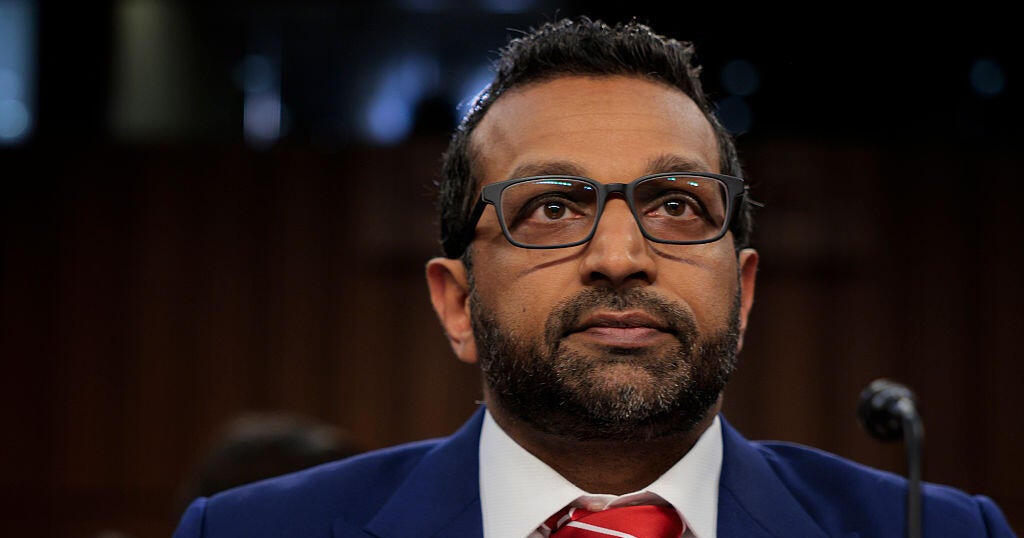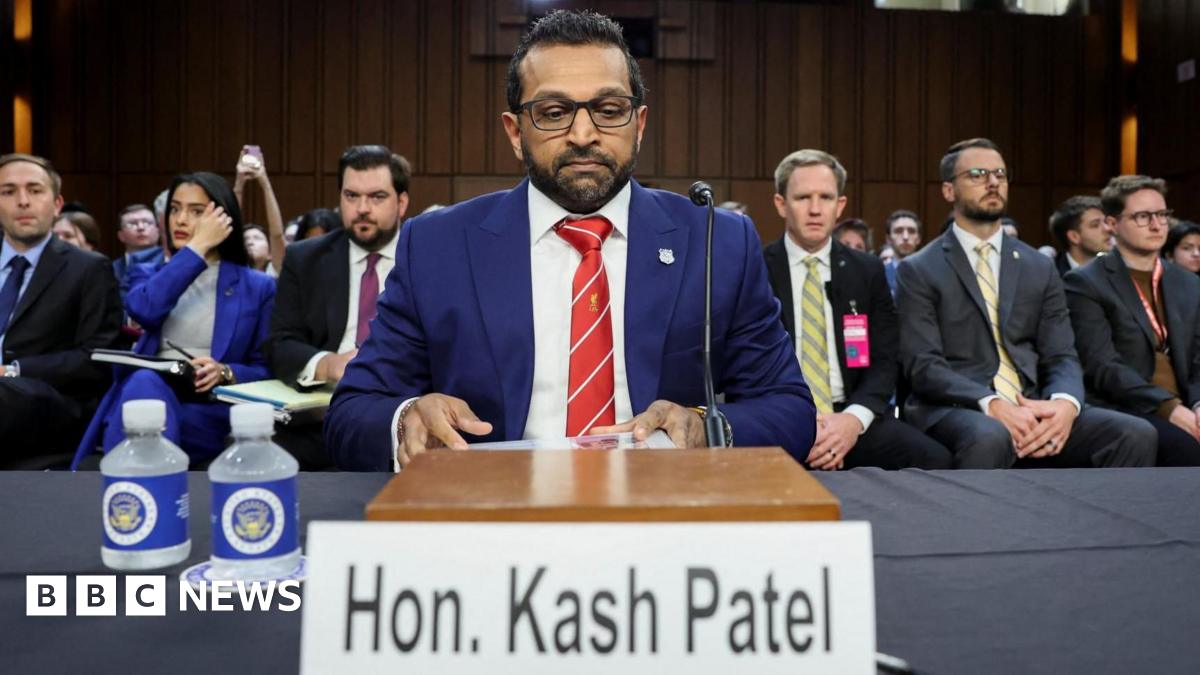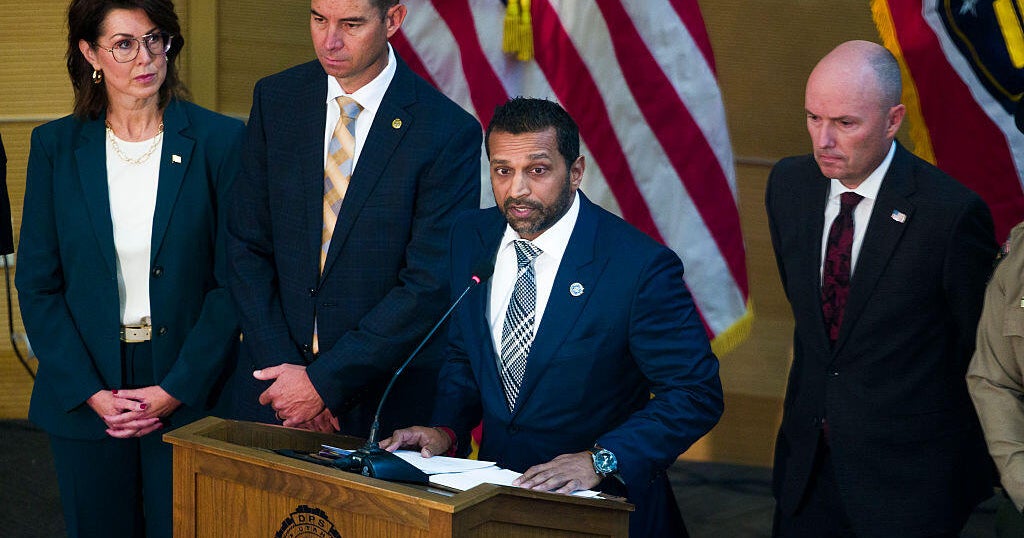Retaliation Against Rep. Ilhan Omar Continues, Targeting Key Figures in the Democratic Party

Introduction
In the midst of the ongoing controversy surrounding Rep. Ilhan Omar, the Democratic party seems to be continuing their retaliation against those who have called for her censure. One of the latest targets of this retaliation is Attorney General Pam Bondi and FBI Director Kash Patel, as they face possible impeachment by Rep. Marc Veasey.
Key Details
Rep. Veasey is specifically targeting Bondi and Patel for their involvement in the handling of Omar's case. This comes after a series of events that have led to calls for censure against Omar, including her controversial comments regarding Israel and her alleged campaign finance violations.
In response, the Democratic party has been pushing back against those who have called for Omar's censure, with the latest being Veasey's move to impeach Bondi and Patel. This further highlights the political climate surrounding Omar and the ongoing tensions between the two major parties.
Impact
This ongoing retaliation and political tension can have significant implications for the future of the Democratic party. As they continue to protect and support Omar, it could potentially alienate and divide their own party and the larger political landscape. It also raises questions about the use of impeachment as a means of retaliation and the effectiveness of such actions in addressing political disagreements.
Overall, the continued targeting of individuals involved in the Omar controversy highlights the deep
About the People Mentioned
Pam Bondi
Pam Bondi is an American lawyer and politician who currently serves as the 87th Attorney General of the United States, having been sworn in on February 5, 2025. A fourth-generation Floridian from Tampa, Bondi earned a Bachelor of Arts in Criminal Justice from the University of Florida and a Juris Doctor from Stetson University College of Law. She spent more than 18 years as a prosecutor in Hillsborough County, handling cases ranging from domestic violence to capital murder. Bondi was elected Florida’s 37th Attorney General in 2010, becoming the first woman to hold the position. She served two terms from 2011 to 2019, during which she gained national recognition for her efforts to combat human trafficking, opioid addiction, and fraud. In her first legislative session, she led reforms that shut down 98 unscrupulous clinics contributing to the opioid crisis. She also chaired the Florida Statewide Human Trafficking Council and was appointed to President Trump’s Opioid and Drug Abuse Commission. Bondi played a prominent role in multistate lawsuits against pharmaceutical companies and led a legal challenge to the Affordable Care Act. She was a vocal supporter of President Donald Trump, joining the White House Counsel’s Office in 2019 and serving on the legal defense team during Trump’s first impeachment trial. After leaving public office, she became a partner at the lobbying firm Ballard Partners and held leadership roles at the America First Policy Institute. Bondi was nominated by President Trump to serve as U.S. Attorney General following the withdrawal of his initial nominee, and she was confirmed by the Senate in February 2025. Her career has been marked by a focus on criminal justice reform, public safety, and conservative legal advocacy.
Kash Patel
Kash Patel is a prominent figure in U.S. law and national security. Born on Long Island, New York, to Indian immigrant parents of Gujarati ancestry, Patel grew up in a culturally diverse background. He graduated from the University of Richmond with a degree in criminal justice and history in 2002. Later, he earned a law degree from Pace University and a certificate in international law from University College London[1][3][4]. Patel began his career as a public defender in Miami-Dade County, Florida, handling complex cases such as murder and drug trafficking. He later transitioned to the U.S. Department of Justice, where he worked as a terrorism prosecutor and liaison officer to the Joint Special Operations Command (JSOC), overseeing investigations against Al-Qaida and ISIS[1][2][3]. Notably, Patel served as the national security advisor and senior counsel for the House Permanent Select Committee on Intelligence (HPSCI), playing a key role in the investigation into Russia's influence on the 2016 U.S. presidential election. He was also a principal author of the controversial "Nunes memo" related to this investigation[3][4]. In recent years, Patel became chief of staff to the acting Secretary of Defense during the Trump administration. He has also been involved in publishing, writing books such as the "Plot Against the King" series and "Government Gangsters: The Deep State, the Truth, and the Battle for Our Democracy"[4]. As of February 2025, Patel became the ninth Director of the FBI, marking a significant shift in his career trajectory. His appointment and subsequent actions have garnered attention due to his background and political affiliations[1][6].
About the Organizations Mentioned
Democratic Party
## Overview of the Democratic Party The Democratic Party is the oldest continuing political party in the United States, with its roots tracing back to 1792 as the Democratic-Republican Party. Founded by Thomas Jefferson and James Madison, it initially advocated for a decentralized government and states' rights, opposing a strong central authority[1][2]. Over time, the party evolved, becoming more progressive and supportive of federal government intervention in social and economic affairs. ## History The modern Democratic Party was formally established in 1828, with Andrew Jackson's presidential campaign marking a significant turning point. Jackson's successful campaign expanded voting rights to all white men, regardless of land ownership, and further reduced federal power[3][6]. The party became deeply divided during the Civil War era, with Northern Democrats supporting limited slavery expansion and Southern Democrats advocating for its perpetuation[3][5]. Post-Civil War, the party became a stronghold for Southern whites who opposed Reconstruction[3]. ## Key Achievements The Democratic Party has played a pivotal role in shaping U.S. history: - **Civil Rights**: The party supported key civil rights legislation, including the Voting Rights Act and the Civil Rights Act of 1964. - **Social Programs**: Democrats have been instrumental in establishing and expanding social programs like Social Security, Medicare, and Medicaid. - **Economic Policies**: The party has often championed progressive economic policies, including labor rights and environmental protection. ## Current Status Today, the Democratic Party is a major force in U.S. politics, advocating for a strong federal government role in addressing social and economic issues. It emphasizes progressive policies on healthcare, climate change, and economic inequality[6]. ## Notable Aspects - **Symbolism**: The party's symbol, the donkey, originated from Andrew Jackson's opponents calling him a "jackass," which his supporters adopted as a mascot[6]. - **Diversity**: The party has become increasingly diverse, representing a wide range of socio-economic and
FBI
The Federal Bureau of Investigation (FBI) is a premier law enforcement agency in the United States, renowned for its role in protecting the nation from domestic and international threats. Founded on July 26, 1908, as the Bureau of Investigation, it was initially tasked with addressing land fraud and corporate malfeasance under President Theodore Roosevelt[1][2]. Over time, its mandate expanded significantly, particularly with the passage of the Mann Act in 1910, which allowed federal jurisdiction over certain moral offenses[1][4]. ### History and Evolution The FBI underwent significant transformation under J. Edgar Hoover, who became its director in 1924. Hoover implemented strict hiring standards and enhanced operational capabilities, transforming the agency into a robust investigative force[1][4]. The FBI's name was officially changed to the Federal Bureau of Investigation in 1935[5][6]. Throughout its history, the FBI has faced challenges, including concerns about potential abuses of power, but it has consistently demonstrated its value in national security and law enforcement[3][4]. ### Key Achievements The FBI has been instrumental in combating various crimes, including white-collar offenses, civil rights violations, and national security threats. Notable achievements include its role in enforcing the Espionage Act during World War I and its investigations into organized crime throughout the 20th century[2][4]. ### Current Status Today, the FBI is a sophisticated agency with over 37,100 employees, including special agents and professionals in various fields such as intelligence analysis and cybersecurity[5]. It operates in 55 field offices across the U.S. and has an international presence in 81 nations[5]. The FBI continues to evolve, addressing emerging threats like cybercrime and terrorism while maintaining its commitment to justice and integrity. ### Notable Aspects The FBI is known for its rigorous training programs at the FBI Academy in Quantico, Virginia, and its advanced forensic capabilities at the FBI Laboratory. Its work in business and technology includes













